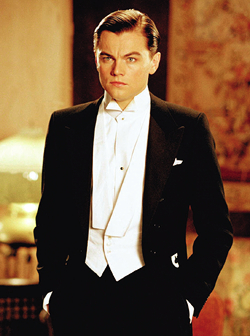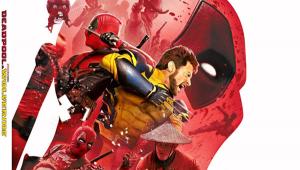Film Editor Thelma Schoonmaker
Thelma Schoonmaker has been director Martin Scorsese's editor of choice ever since their shared career-defining turn on Raging Bull. With a collaboration spanning almost four decades, Schoonmaker recently won her second Academy Award and has been nominated for three others in the past. She took time off from her work on the upcoming crime drama The Departed to rewind with us.

You Have Two Oscars now—congratulations. What do you think it was that pushed you over the top on both Raging Bull and The Aviator?
I think it was the dazzling style Martin Scorsese gave both pictures. That gave me wonderful footage to work with, and the editing of the fight sequences in Raging Bull and the plane crashes in The Aviator were very visible.
What is it about a Scorsese film that inspires such talented people to bring their best work time after time?
You know a master is at the controls. Marty infects people with his enthusiasm and love of film, his high standards, his rejection of anything clichéd, and his beautiful style. Crews find it very hard to detach themselves from him at the end of a movie. They go through Marty withdrawal.
Looking at the list of films you've done, there were no movies in the 1970s, then Raging Bull—What a comeback.
I couldn't work on Marty's films in the '70s because I wasn't in the union in Los Angeles, where Marty had gone to bust in. So, I worked on documentaries for a while. When it became possible for me to work on Raging Bull, I was terrified: I had never been on a big Hollywood film. But Scorsese reassured me and said he would help me adjust, and he did. Then I found I was working on one of the most original and powerful films ever made.

Seldom is the film editor so prominent in a dvd's bonus features as you are on Scorsese's special editions: Raging Bull, The Aviator, and now Casino.
When you work for someone as fascinating as Scorsese, there is so much to say. We have worked together for more than 30 years now, and I like to let people in on some of the details about the way he directs his films.
Why is film editing one of the few jobs in the movie industry where women are properly represented?
I think women make good collaborators, and every director deserves that kind of support. Editing requires very hard work, patience, discipline, and good organizational skills, and these are second nature to many women. Of course, talent is the most important thing in editing—a sense of how to shape material, how to get the best out of the actors' performances, rhythm, pacing, structure, a good musical sense—and that is not something only women have.
 It's interesting that you mention Good musical sense. You were actually an assistant director on the movie Woodstock, right?
It's interesting that you mention Good musical sense. You were actually an assistant director on the movie Woodstock, right?
I was just trying to help get the film shot. Scorsese was helping [director and cinematographer] Michael Wadleigh try to organize camera moves among all the cameramen on the stage, but it soon became impossible. The headphones that the cameramen were wearing were getting loud jolts of sound from somewhere, and you could see them ripping their headphones off all over the stage. So, Scorsese concentrated on helping Wadleigh decide which songs to cover and whatever else he could do to help. I was just trying to keep magazines loaded with film and fighting with reporters who were trying to get up on the platform we had built for Wadleigh. It was like a war.
How does an editor possibly begin shaping something that massive?
Everything had to be synced (the picture to the soundtrack) by eye, and we had people working 24 hours a day doing that. It took a long time to find the shape for the film and to integrate the documentary portions with the musical numbers. But it was enormously fun.
And, subsequently, you worked on Paul McCartney's Rockshow tour?
I didn't work on the concert film but made a little piece for television about the backstage life. This was in the period when I couldn't work for Scorsese. It was another very happy experience.

You and scorsese worked on the music video for michael jackson's "bad." What was editing that like? Many people have said that MTV is really about the editing.
Whenever Scorsese makes a film that is governed by the music—he has such a gift for putting images to music. We could just cut loose with "Bad." I don't get a chance to watch much MTV, but, when I do see it, there is no doubt that editing is 50 percent of the effect.
How does your approach differ on a documentary versus a dramatic film?
A documentary is a real challenge because you are given a lot of raw footage and usually have to find a structure for it. But feature films are a different challenge: You have a story and dialogue for which you have to find the right shape and pace. Mainly, you have to make the material resonate for an audience.
Now, in the age of DVD, I can imagine film students watching your movies frame by frame to see how you did what you did.
It's wonderful for film students now that they can study a film in detail. When Scorsese and I were film students, we could only go to the art houses and see a film up on the screen. But we make our own films to be seen that way, and the first impression one gets of a film should ideally be from seeing it on a big screen. Nothing can replace that moment. Sharing the experience with an audience is also terribly important, instead of looking at a film on DVD alone. But, more and more, that is the way films are seen; there is no denying that.
 With The precise scrutiny you bring to your work, You must know each movie intimately by the end of the process.
With The precise scrutiny you bring to your work, You must know each movie intimately by the end of the process.
Oh, yes, I know the films by heart. I know every line and every cut, and they stay in my mind for a long time. My assistants and I usually start speaking in the lines from the film we are working on and from films we have worked on in the past. People just coming into the editing room might find it a bit odd. We have our own strange language made up of phrases we love from Scorsese's films, going right back to Raging Bull.
How hard is it to let go after all that hard work?
It used to be very hard to suddenly stop working on a film, when it had taken up every hour of my life for a year. When it first happened to me on Woodstock, I thought I was going mad. Working on a film, you develop wonderful friendships and share very exciting times with people. And then, all of a sudden, they are gone, and the film you worked so hard on is gone, too. However, now I'm going right to work on one of the documentaries Scorsese is making on the history of film, so I don't have separation anxiety right now.
- Log in or register to post comments



























































